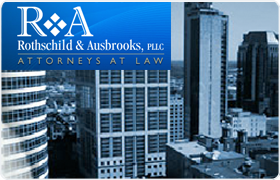Cross Plains Workout Lawyer, Tennessee
Sponsored Law Firm
-
 x
x

Click For More Info:
-
Rothschild & Ausbrooks, PLLC
1222 16th Ave. South, Suite 12 Nashville, TN 37212» view mapBankruptcy Filing, Chapter 7, Chapter 13 You Are Not Alone. We Can Help.
Our law firm encourages communication. We respond to calls and e-mails promptly. This is your case, and you will be involved every step of the way.
800-966-8531
Not enough matches for Cross Plains Workout lawyer.
Below are all Cross Plains Bankruptcy & Debt lawyers.
Mary Beth Ausbrooks
✓ VERIFIEDBankruptcy & Debt, Consumer Bankruptcy
Board Certified Specialist in Consumer Bankruptcy
For more than three decades, the bankruptcy attorneys at Rothschild & Ausbrooks, PLLC, in Nashville, Tennessee, have been devoted to helping individua... (more)
FREE CONSULTATION
CONTACTStormie Gayle Stafford
Credit & Debt, Civil Rights, Family Law, Litigation
Status: In Good Standing Licensed: 39 Years
Josh Dana Hankins
Administrative Law, Credit & Debt, Elder Law, Wills & Probate
Status: In Good Standing Licensed: 15 Years
Steven Francis Glaser
Government, Credit & Debt, Bankruptcy & Debt, Administrative Law
Status: In Good Standing Licensed: 38 Years
Eric K. Fox
Divorce, Consumer Protection, Bankruptcy, Bankruptcy & Debt
Status: In Good Standing Licensed: 23 Years
Mitzi A. Urquhart
Reorganization, Credit & Debt, Bankruptcy, Bankruptcy & Debt
Status: In Good Standing Licensed: 25 Years

 Mary Ausbrooks Nashville, TN
Mary Ausbrooks Nashville, TN Contact UsCall or Email
Contact UsCall or Email LinkedIn
LinkedIn

